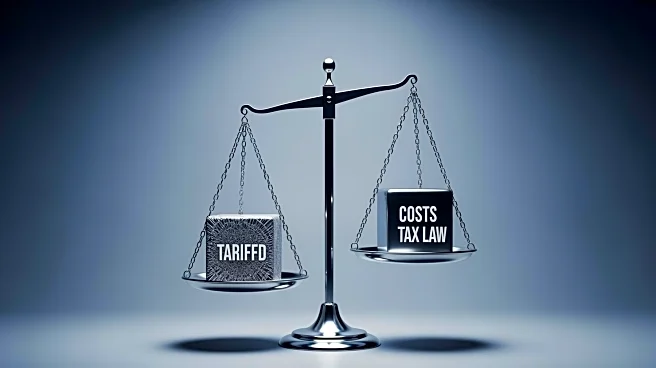What's Happening?
Ukraine has ramped up its campaign against Russian oil infrastructure, leading to significant gasoline shortages in Russia. Recent strikes on the Ust-Luga port in Leningrad Oblast have reduced the port's oil export terminal capacity to about half, operating at approximately 350,000 barrels per day for September 2025. Ukrainian forces have also targeted Russian rail-transported fuel shipments, exacerbating supply issues. These actions are part of a broader strategy by Ukraine to disrupt Russian military assets and energy infrastructure, including strikes on radar systems and fuel pumping stations. The ongoing strikes have contributed to logistical challenges and price spikes in Russia's domestic gasoline market.
Why It's Important?
The Ukrainian strikes on Russian oil infrastructure have significant implications for Russia's economy and military operations. Gasoline shortages and price increases could lead to inflationary pressures and macroeconomic instability within Russia. These disruptions may also affect Russia's ability to sustain its military operations, as fuel shortages could hinder logistics and transportation. The strikes demonstrate Ukraine's strategic approach to weakening Russia's military capabilities by targeting critical infrastructure. This development could influence international perceptions of the conflict and potentially affect diplomatic efforts for peace negotiations.
What's Next?
Ukraine's continued strikes on Russian infrastructure are likely to persist, potentially leading to further disruptions in Russia's energy supply chain. The U.S. and Ukrainian representatives have reaffirmed Ukraine's readiness for peace negotiations, which could be influenced by the ongoing military developments. The U.S. State Department has approved significant military sales to Ukraine, including aviation ammunition and Patriot air defense system support, indicating continued support for Ukraine's defense efforts. The international community may closely monitor these developments, as they could impact geopolitical dynamics and future negotiations.
Beyond the Headlines
The strikes on Russian oil infrastructure highlight the ethical and legal dimensions of targeting civilian infrastructure during armed conflict. These actions raise questions about the balance between military objectives and humanitarian considerations. The long-term impact on Russia's economy and its ability to sustain military operations could lead to shifts in regional power dynamics. Additionally, the strikes may influence public opinion within Russia, potentially affecting domestic support for the government's actions in Ukraine.








